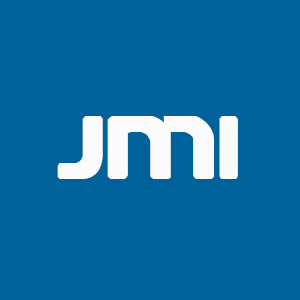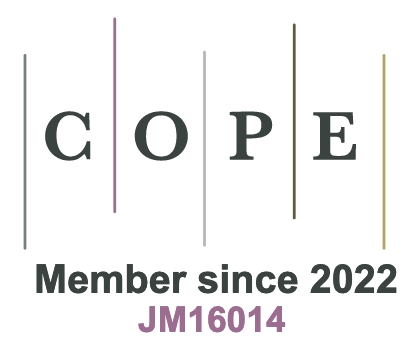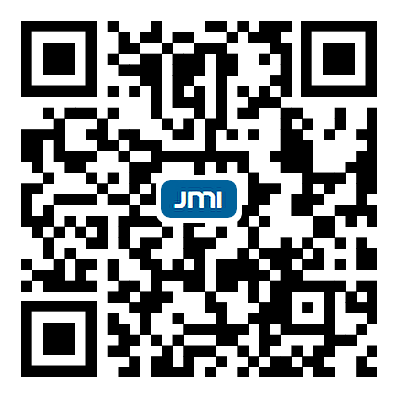2024 Annual Report of Journal of Materials Informatics (JMI)
1. Journal Overview
1.1 Submissions and Publications
In 2024, Journal of Materials Informatics (JMI) experienced a remarkable surge, receiving 109 submissions — a staggering 159% increase from the previous year. The journal published four volumes comprising 35 articles, representing a 34.6% rise in output. The rejection rate was recorded at 56%. Staying true to its mission of advancing pioneering research, JMI's 2024 publications included 85.7% Research Articles and 14.3% Review Articles. Impressively, 91% of the articles benefited from Article Processing Charge (APC) waivers, totaling $41,600.

Figure 1. Submission and Publication Trends in JMI
1.2 Manuscript Processing Timelines
JMI has consistently enhanced its manuscript processing efficiency while upholding rigorous review standards. The average processing times for various stages are as follows:
- Submission to First Decision: 42 days
- Acceptance to Publication: 6.8 days
- Submission to Publication: 82 days
- Submission to Acceptance: 75.6 days
1.3 Indexing in Academic Databases
We are pleased to announce that JMI was successfully indexed in the Emerging Sources Citation Index (ESCI) in 2024, a testament to its growing stature in the academic community and a precursor to its first Impact Factor anticipated in June 2025. Currently, JMI is indexed in esteemed databases including ESCI, CAS, CNKI, Dimensions, ResearchGate, Lens, and J-Gate.
2. Journal Impact
2.1 Citation Performance
In 2024, JMI articles garnered 396 citations on Google Scholar and 287 on Web of Science. Articles published in 2022-2023 received 216 citations this year. Since its inception, the journal boasts an average of 6.35 citations per article, with a self-citation rate of 5.6%. For articles published in 2022-2023, the average citation rate is 6.83, with a self-citation rate of 2.3%.
Data source: Citation Report - 76 - All Databases (as of December 31, 2024).
2.2 Citing Journals
In 2024, JMI articles were cited by 121 journals, with 61% of these journals classified in the Q1 category.

Figure 2. Proportions of Citing Journals by Quartile in 2024
2.3 Social Media Engagement
JMI actively connects with its audience through platforms such as WeChat Official Account, WeChat Video Channel, and Twitter, regularly showcasing the latest articles and updates.
In 2024, the WeChat Official Account (材料信息学 MaterialsInformatics) published 93 posts, amassing 2,864 followers—a 132.66% increase from 2023—and achieving a total of 129,080 views, with 36 posts surpassing 1,000 views.
On Twitter (@OAE_JMaterInf), 137 tweets were disseminated, attracting global attention from experts and scholars.
3. Editorial Board
In 2024, JMI welcomed 19 outstanding scholars to its editorial board, including 4 Advisory Editors (Figure 3), 8 Associate Editors (Figure 4), and 7 Editorial Board Members (Figure 5), significantly enhancing the board's academic influence and international reach.
As of December 31, 2024, JMI's editorial board comprises 54 members from 10 countries, including the United States, China, Germany, Japan, Sweden, Canada, Australia, Belgium, Singapore, and Norway. Among them are 10 academicians and 13 members with an H-index exceeding 80.

Figure 3. New Advisory Editors in 2024

Figure 4. New Associate Editors in 2024

Figure 5. New Editorial Board Members in 2024
4. Authors, Readers, and Reviewers
4.1 Geographic Distribution of Authors
In 2024, JMI received submissions from 590 authors across 19 countries/regions, adding 10 new countries compared to 2023. These authors predominantly hail from countries or regions with strong materials science disciplines. The top five contributing countries/regions were Mainland China, the United States, Austria, Hong Kong, and Australia, reflecting the journal's growing international influence.
4.2 Geographic Distribution of Readers
JMI articles garnered significant global attention and recognition in 2024, amassing 142,126 views and 56,592 downloads. The distribution of article views and downloads by country/region is shown in Figure 6.

Figure 6. Geographic Distribution of JMI Article Views (left) and Downloads (right)
4.3 Geographic Distribution of Reviewers
In 2024, 209 scholars from 19 countries/regions actively contributed to the journal's peer review process. These reviewers, originating from developed countries and regions with strong materials science expertise, provided invaluable insights that greatly improved manuscript quality and bolstered the journal's academic reputation.

Figure 7. Geographic Distribution of Reviewers
5. Journal Promotion and Collaboration
5.1 Offline Activities
5.1.1 Organized Academic Conferences
On April 27, 2024, JMI hosted the "2024 Materials Informatics Summit Forum" at Kunming University of Science and Technology, drawing over 200 scholars. The forum featured 18 cutting-edge reports on "AI for Materials", receiving high praise from participants for its insightful discussions and networking opportunities.

Figure 8. 2024 Materials Informatics Summit Forum
On April 28, JMI held its first offline Editorial Board Meeting in Kunming, attended by 25 editorial board members and Junior editorial board members. The meeting reviewed the journal's accomplishments, outlined future development strategies, and included the presentation of editorial appointment certificates. Awards for "Best Paper ", "Outstanding Editorial Board Member “ and "Outstanding Junior Editorial Board Member” were also presented.

Figure 9. JMI First Offline Editorial Board Meeting
5.1.2 Attended Academic Conferences
In July and October 2024, the JMI editorial team participated in two major academic conferences: the "Chinese Materials Congress 2024 & The 2nd World Materials Conference" in Guangzhou and the "International Workshop on Data-driven Computational and Theoretical Materials Design (DCTMD 2024)" in Shanghai. These events provided a platform for promoting the journal, further enhancing its visibility and impact within the academic community.

Figure 10. Editorial Team Promoting the Journal at Offline Conferences
5.1.3 Author Training Sessions
In the latter part of the year, JMI organized author training sessions at Northwestern Polytechnical University, Shanghai University, and Zhejiang A&F University. These sessions aimed to equip participants with a comprehensive understanding of the academic publishing process and the intricacies of submitting to journals.

Figure 11. Author Training Sessions
5.2 Online Activities
Webinars
On September 6, JMI hosted its 11th webinar, featuring Professor Sergei V. Kalinin from the University of Tennessee. His presentation, titled "AI Scientist: Automating Electron and Scanning Probe Microscopes for Physics Discovery and Materials Optimization," attracted scholars from 11 countries and regions, with the live stream garnering over 20,000 views. Webinar link

Figure 12. 11th Webinar
Interviews
In 2024, JMI launched the "Academic Talk" series on its website. Interviews were conducted with two newly appointed Associate Editors: Prof. Xiaoying Zhuang from Leibniz University Hannover, Germany, and Prof. Hao Li from Tohoku University, Japan. These exceptional scientists shared their teams' research achievements, discussed challenges, and provided profound insights into the future of materials informatics.
Interview videos: Prof. Xiaoying Zhuang, Prof. Hao Li

Figure 13. Interviewed Scholars
Summary
The year 2024 marked a period of rapid growth for JMI. With significant increases in submissions and publications, the journal's academic influence and readership also expanded substantially. These achievements are a testament to the collective efforts and unwavering support of the editorial board members, junior editorial board members, authors, reviewers, and readers. We extend our sincere gratitude to all who contributed to this success. Moving forward, JMI remains committed to high-quality publishing, focusing on advancing "AI for Materials," and striving to establish a premier platform for academic exchange and innovation in materials informatics.
Editor: Mengyu Yang
Language Editor: Emma Chen
Production Editor: Ting Xu
Respectfully Submitted by the Editorial Office of Journal of Materials Informatics (JMI)







